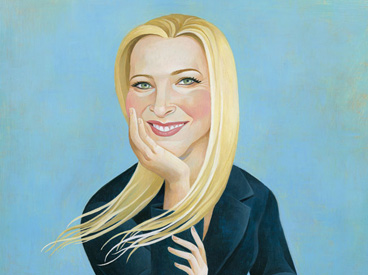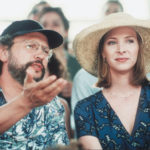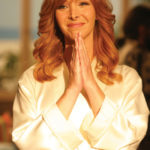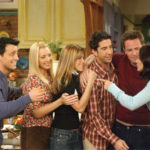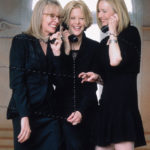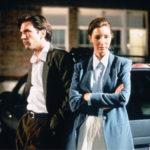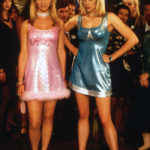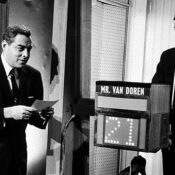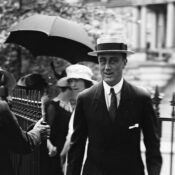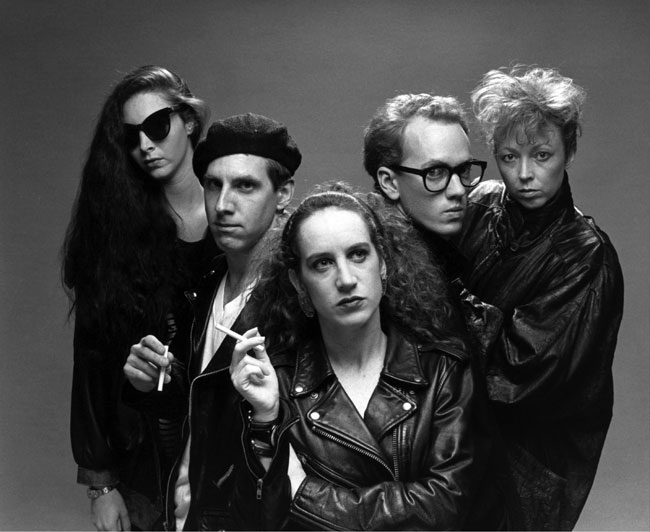
Credit: Dave Siegel/Photofest
Q: How did your brother’s friend Jon Lovitz influence you?
LK: He sent me to The Groundlings. That was his recommendation. That was the single best direction I ever got. It was an important suggestion. I had done a lot of acting classes; I studied theater in college, but I learned the most at The Groundlings.
Q: Your agent didn’t want you to do the small role in Mad About You, which would lead to your being cast in Friends. Is that agent still with you?
LK: No. Though it wasn’t bad advice. He said, “You did the Frasier pilot, you don’t say OK to do a character who doesn’t have a name and only two lines.” But I felt I wasn’t in the position to be highfalutin’ about anything. I needed money; it was a great show, so I did it.
Q: How many countries is Friends syndicated in?
LK: I don’t know, but that’s been surprising to me. It’s a new realization about Friends. It’s almost 20 years since we started. Because it’s relationship-based, that’s why it’s still funny and people still like it.
Q: Do you get residuals from every country where it plays?
LK: I should. I’m supposed to. [Laughs.]
Q: What do you spend money on that’s an extravagance?
LK: Traveling well. Wherever I have to go. I’m not good on vacations. And I like facials.
Q: You must get some amusing fan letters from around the world. ™
LK: People mostly send me a picture to sign.
Q: Do people still call you Phoebe?
LK: Yes, they do. I don’t turn around. I never turn around. If someone’s in front of me, I’ll smile and try to be nice. But I don’t like taking pictures. Autographs are fine.
Q: When you were in college you asked Elie Wiesel and E.O. Wilson for their autographs. Have you ever asked anyone else since then?
LK: No. Those weren’t social settings. E.O. Wilson was in his office, but I thought it was OK. And Elie Wiesel, how do you get any bigger than that? Other people I’ve met have been at dinner or cocktail parties and it’s not appropriate.
Q: Was Phoebe originally written the way you played her?
LK: I think so. The audition piece was the monologue that Phoebe said in the pilot episode. Everything I knew about her character came from that speech. She was basically a ditzy girl who lived in a happier reality than everybody else, because everything was so gloomy around her. That’s what I decided. And she was fearless and unapologetic. Now on Twitter or Facebook I see young girls saying, “I identify with Phoebe because I’m different too.” That’s nice, to think that people who don’t feel they fit in perfectly well can relate to that character.
Q: Did people—and do they sometimes now—take you as being ditzy because of Phoebe?
LK: Some people do.
Q: Is that your greatest fear, being taken as an idiot?
LK: Yes, and no. It’s not with people who don’t know me, but it is with people who do know me.
Q: You told Matthew Perry on CNN that you were sorry the show ended.
LK: Matthew said that, and then I agreed with him. It was a lot of fun. But I think there was the feeling of better to go out on top, like Seinfeld had done.
Q: The six cast members voted to end the show. If you all had that vote back, do you think you’d still be doing Friends?
LK: I don’t know, I’d have to check in with everybody. I get nervous about speaking for other cast members.
Q: You told Matthew that you sucked on Friends. Do you really think that?
LK: Yes, sometimes I watch myself, and I mean, really?
Q: When you see it on TV now, do you watch it or keep clicking the remote?
LK: It depends on my mood. If I’m in a bad mood, I’d better not. Sometimes my son will come in, and we’ll see it, and he’ll have questions—mostly what he wants to know is, “So how old was I when you did that one?” He doesn’t care about me.
Q: Why were guest stars like Susan Sarandon, Bruce Willis, and Sean Penn so scared or nervous about appearing on Friends?
LK: It wasn’t just Friends, it was the multi-camera in front of an audience thing. There’s nothing else like it. A play or a film doesn’t prepare you for that. It’s trying to figure out the energy level. It’s so different.
Q: There is always talk of a Friends reunion. Do you think that will ever happen?
LK: Not that I know of.
Q: Friends made you famous. What surprised you about fame?
LK: I had always thought that fame would give you permission to lighten up on yourself. If everybody else likes you, you could finally have permission to love yourself. It’s not true.
Q: Speaking of love, your husband [Michel Stern] was originally your girlfriend’s boyfriend. Was it ever awkward when you started seeing him?
LK: He went out with my roommate, yeah. Six years later I started seeing him. She wasn’t that happy. But she has two kids now.
Q: You’ve been married 18 years. What are the best things about it?
LK: We’re still attracted to each other—that’s a good one. We’re close; we’re friends; we talk. We’re very connected. And we’re still very much in love—we say that and feel that a lot. That’s very lucky—I’m knocking wood right now—because I don’t think you get that too often.
Q: What have you learned about love over the years?
LK: That it needs attention.
Q: Let’s talk briefly about your film career. Of the films you’ve done, which were you most satisfied with?
LK: I liked Opposite of Sex. I really loved Wonderland. I thought that was done really well.
Q: In Analyze This, you got to work with Billy Crystal and Robert De Niro.
LK: They were so great. They kept inviting me to play. But I don’t think I grabbed the bull by the horns.
Q: Did you feel that way when Diane Keaton directed you and Meg Ryan in Hanging Up?
LK: I learned a lot from Diane. Her whole thing was “Let’s not be too precise.” She was looking for more spontaneity than precision; she liked when we were talking over each other. I think I get it now more than I did then. One of my biggest flaws is that I’m too compliant and want to please the authority figure — the director or the writer. I don’t want to be a difficult person.
Q: Diane Keaton said that you were mysterious, complicated, sly, and witty.
LK: Really? I might be mysterious — I’ve been told, “I don’t know what you’re thinking.” And I’ve been told, “Every thought you have is on your face.” So I guess that makes me complicated and mysterious. [Laughs.] Sly, I don’t know. Maybe. Witty is nice.
Q: When you visited my seminar on interview technique at UCLA, you said you wished there were more Katharine Hepburn-styled scripts written for women today — smart, articulate, and witty. Do you still feel that way?
LK: It’s gotten better, for sure, because you have so many strong women in comedy who write, like Tina Fey and Kristen Wiig and Mindy Kaling. It’s not going to be the same because our society is not the same.
Q: Who makes you laugh?
LK: They do. But there are so many, because there are all different shades of comedy. Steve Carrel, Will Ferrell. Tina Fey, Kristen Wiig, Mindy Kaling, Sarah Silverman. A lot. What makes me laugh is seeing people being caught off guard. Not knowing how they’re coming off.
Q: Well, you certainly make a lot of people laugh. Do people often tell you that?
LK: My dad is a big Web Therapy fan. He’ll text me saying “I had an asthma attack from laughing so hard.”
Become a Saturday Evening Post member and enjoy unlimited access. Subscribe now
